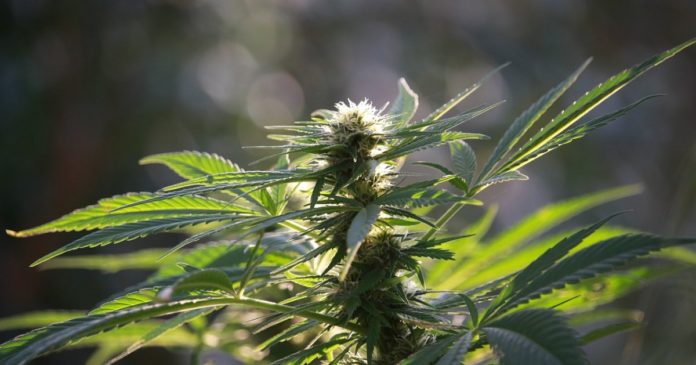A recent health advisory from Missouri’s Department of Health and Senior Services (DHSS) alerts consumers to what it claims are health risks associated with intoxicating hemp-derived cannabinoids.
The DHSS says recent proliferation of hemp-derived intoxicating cannabinoids such as delta-8 tetrahydrocannabinol pose significant health risks, particularly to youth. The wide availability of these products, made by manipulating non-intoxicating cannabinoids such as cannabidiol (CBD), has resulted from a loophole in federal law.
While these novel cannabinoids have been around since 2018, Missouri DHSS originally sounded an alarm in 2021 when it joined the CDC in issuing a health advisory warning the public to be aware of concerns.
“Since then, Missouri has experienced an increase in cannabis consumption poisonings and has identified reliable evidence of unique health and safety risks associated with these products.”
Aside from a lack of studies on human health effects and safety of these compounds, one of the major concerns is lack of age restrictions and products being packaged in a way that is appealing to children – some going as far as intentionally mimicking commercial food products that appeal to kids. There have been reports of minors buying intoxicating hemp cannabinoid products unchallenged from gas stations and convenience stores.
Furthermore, many products are inaccurately labeled in terms of potency and don’t include the presence of combinations of intoxicating cannabinoids, other toxic byproducts or contaminants DHSS says.
“At this time, the public should avoid products that contain Hemp-Derived Intoxicating Cannabinoids until further notice,” states the advisory. “Without additional research regarding safety in humans, these compounds are considered unsafe.”
The DHSS advises consumers check product labels before purchasing and avoid the following ingredients if the product is being sold outside of a state-licensed cannabis dispensary: Delta-8 THC, Delta-6 THC, Delta-10 THC, Delta-11 THC, THC-A, THC-O, THC-P, THC-V, THC-JD, PHC, HHC, HHC-P and HXC.
Missouri’s attorney general is among 21 AGs across the USA who have called on the Committee On Agriculture to tighten up the definition of hemp in the new five-year reauthorization of the Farm Bill to help address the issue.
Missouri has both a legal medical and adult-use cannabis program. The first legal medical marijuana sale in the state occurred in October 2020 and the first licensed sales for adult/recreational use were in February last year. Patient registrations plummeted after recreational legalization and no doubt the growing availability of intoxicating hemp-derived cannabinoid products has played a role.


